| | | OFFLINE | | Post: 17.823
Post: 492 | Registrato il: 28/08/2005
Registrato il: 20/01/2009 | Administratore | Utente Senior | |
|
 GENERAL AUDIENCE TODAY
GENERAL AUDIENCE TODAY
For the second week in a row, the Holy Father today spoke about the Year for Priests in his catechesis at the General Audience held in St. Peter's Square.
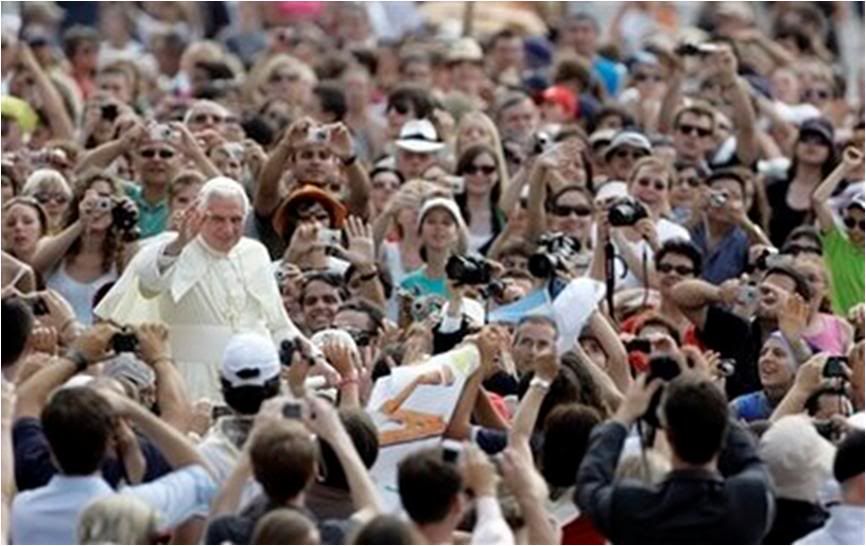

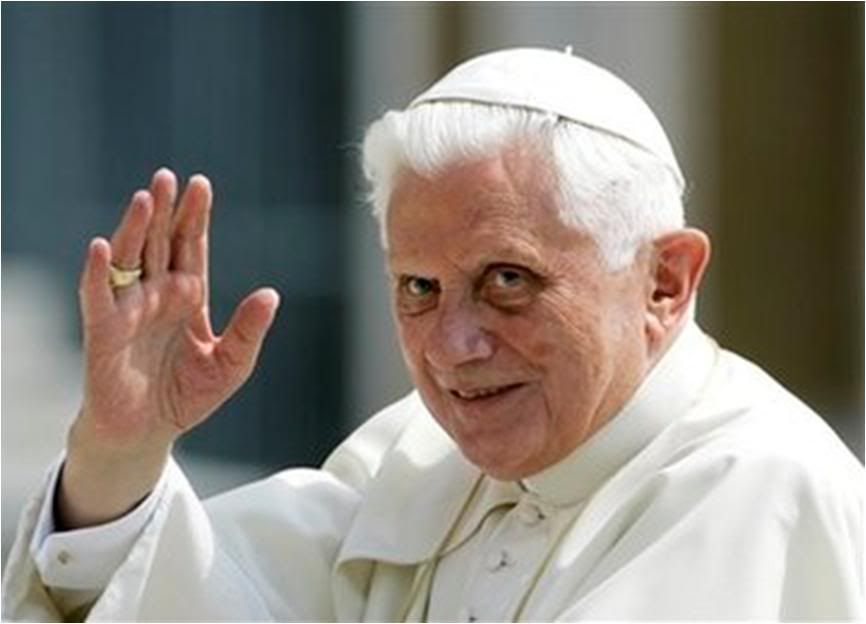

Here is how the Pope synthesized his catechesis in English:
There is a close link between the Pauline Year, which concluded last Sunday, and the Church’s current celebration of the Year for Priests. As we have seen, Saint Paul, in his life and his writings, teaches us that the mystery of Christ must stand at the very heart of our lives as individuals and as a community.
This is true in a very special way of priests. In Saint John Mary Vianney, the patron saint of parish priests, we see a wonderful example of a priest whose person was completely identified with his ministry.
The priest’s personal identity, grounded in his calling and his sacramental configuration to Christ, may not be separated from his pastoral activity.
Indeed, the ministry of every priest is essentially "cultic", in the fullest sense of the word: it is meant to enable the faithful to offer their lives to God as a pleasing sacrifice (cf. Rom 12:1).
It is my hope that this Year for Priests will help all priests to appreciate the immense grace of their vocation, consecration and mission. During this Year may the whole Church pray and work more fervently for the sanctification of priests, an increase of priestly vocations, and a greater appreciation of the role of the priest in the life of the ecclesial community.
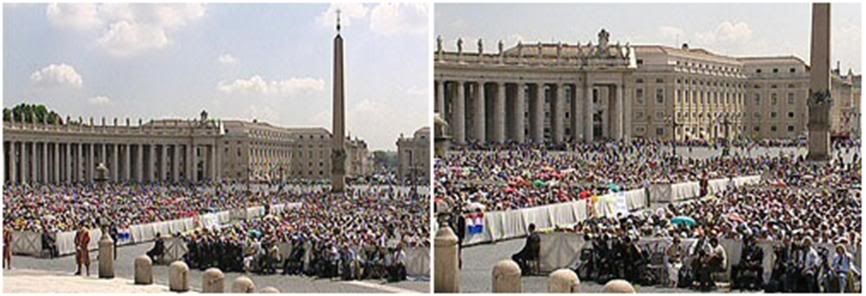


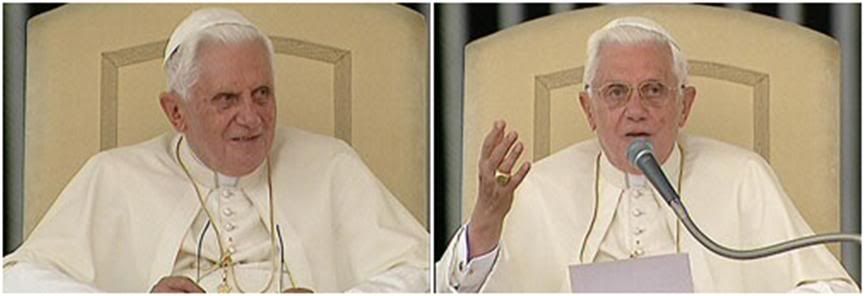 THE HOLY FATHER'S CATECHESIS
THE HOLY FATHER'S CATECHESIS
Dear brothers and sisters,
As you know, with the celebration of the First Vespers of the Solemnity of Saints Peter and Paul at the Basilica of St. Paul outside the Walls last Sunday, the Pauline Year commemorating the second bimillenary of the birth of the Apostle to the Gentiles came to an end.
Let us thank the Lord for the spiritual fruits which this important initiative has brought to so many Christian communities. As a precious legacy of the Pauline Year, we can accept the Apostle's invitation to deepen our knowledge of the mystery of Christ so that he may truly be the heart and center of our personal and communitarian existence.
Indeed, this is the indispensable condition for true spiritual and ecclesial renewal. As I had occasion to underscore at the first Eucharistic celebration in the Sistine Chapel after my election as Successor to the Apostle Peter, it is precisely from full communion with Christ that "that every other element of the life of the Church flows from, above all, communion among all the faithful, commitment to announcing and bearing witness to the Gospel, and the ardor of charity for all, especially towards the poor and the humble" (cfr Insegnamenti, I, 2005, pp. 8-13).
This applies first of all to priests. For this, let us thank the Providence of God who now offers us the opportunity to celebrate the Year for Priests. I wish with all my heart that it may constitute for every priest an opportunity for interior renewal and, consequently, of firm reinvigoration in the commitment to his own mission.
As we constantly referred to St. Paul in the Pauline Year, likewise in the following months, we shall be looking first of all towards St. Jean Marie Vianney, the holy Curate of Ars, on the 150th anniversary of his death.
In the letter that I wrote to all priests for this occasion, I emphasized the quality that shone best in the existence of this humble minister of the altar: "his total identification with his own ministry".
He loved to say that "a good pastor, a pastor after the Lord's heart, is the greatest treasure that the good God can grant to a parish, and one of the most precious gifts of divine mercy".
And then, almost as though he could not quite believe the greatness of this gift and the task entrusted to a poor human creature, he exclaimed: " O, how great a priest can be!... If he understood it all, he would die... God 'obeys him': he says a few words and Our Lord comes down from heaven to enclose himself in a tiny host!"
In fact, simply by considering the binomial "identity-mission', every priest should be better able to appreciate the necessity for that progressive identification with Christ that guarantees the faithfulness and fecundity of evangelical witness.
The very motto of the year for Priests - "Faithfulness to Christ, faithfulness of the priest' - shows that the gift of divine grace precedes every possible human response and pastoral reality, and thus, in the life of a priest, missionary proclamation and worship are never separable, just as his ontological-sacramental identity and evangelizing mission can never be separated.
Moreover, the goal of every priest's mission, we can say, is 'cult-ic' [about worship] - that all men may be able to offer the self to God as a living host that is holy and pleasing to him (cfr Rm 12,1), which in creation itself, in men, becomes worship, praise of the Creator, from which men receive that charity which they are called on to dispense abundantly with each other.
This was clearly understood in early Christianity. St. John Chrysostom said, for instance, that the sacrament of the alter and the 'sacrament of the brother' or 'sacrament of the poor' constitute two aspects of the same mystery.
Love for neighbor, the concern for justice, and attention towards the poor, are not so much themes of social morality, as they are the expression of a sacramental concept of Christian morality, since, through the ministry of priests, the spiritual sacrifice of all the faithful is completed in union with that of Christ, the only Mediator.
It is a sacrifice that priests offer in a bloodless sacramental way in anticipation of the second coming of the Lord. This is the principal dimension, essentially missionary and dynamic, of the priest's identity and ministry.
Through proclaiming the Gospel, he can generate faith in those who do not yet believe, so that they may join their sacrifice - translated into love of God and love for one's neighbor - to the sacrifice of Christ.
Dear brothers and sisters, in the face of so many uncertainties and a sense of exhaustion in the exercise of the priestly ministry, it is urgent to recover a clear and unequivocal conclusion about the absolute primacy of divine grace, recalling what St. Thomas Aquinas wrote: "The smallest gift of grace surpasses the natural goodness in the whole universe" (Summa Theologiae, I-II, q. 113, a. 9, ad 2).
The mission of every single priest depends above all, therefore, on his awareness of the sacramental reality of his 'new being'. The ever renewed enthusiasm of the priest for his mission depends on the certainty about his own identity, not artificially constructed, but freely and divinely given and received.
Even for priests, what I wrote in the encyclical Deus caritas est applies: "Being Christian is not the result of an ethical choice or a lofty idea, but the encounter with an event, a person, which gives life a new horizon and a decisive direction" (No. 1).
Having received an extraordinary gift of grace with their 'consecration', priests become permanent witnesses to their encounter with Christ. And on the basis of this interior awareness, they can fully carry our their 'mission' through announcing the Word and administering the Sacraments.
After the Second Vatican Council, the impression was given here and there that the mission of priests in our time was rather something more urgent: some think that in the first place, they should help construct a different society.
But the Gospel passage that we heard at the start [of the Audience] reminds us of the two essential elements of the priestly ministry. In those days as today, Jesus sent out the Apostles to announce the Gospel and gave them the power to drive out evil spirits.
'Announcement' and 'power' - namely, 'the Word" and 'Sacrament' - are thus the two fundamental pillars of priestly service, beyond their multiple possible configurations.
When one loses sight of this 'diptych' of consecration and mission, then it becomes truly difficult to understand the identity of the priest and his ministry in the Church.
What is a priest, in fact, but a man who has been converted and renewed in the Spirit, who lives out of a personal relationship with Christ, and constantly makes evangelical criteria his own?
What is a priest if not a man of unity and truth, conscious of his own limitations, and at the same time, of the extraordinary greatness of the vocation he has received, namely, that of extending the Kingdom of God to the very ends of the earth?
Yes, a priest is a man totally belonging to the Lord, because God himself called him and constituted him in his apostolic service.
And because be belongs totally to God, he belongs to all men, for all men.
During this Year for Priests which will extend up to the Solemnity of the Sacred Heart of Jesus next year, let us pray for all priests. May such prayer initiatives, and in particular, Eucharistic adoration, for the sanctification of priests and priestly vocations, multiply in the dioceses, parishes, religious communities especially the monastic,church associations and movements, and in various pastoral associations around the world - as a response to Jesus's call "to ask the master of the harvest to send out laborers for his harvest" (Mt 9,38).
Prayer is the first commitment, the true way of sanctification for priests, and the soul of authentic 'pastoral vocation'. The numerical scarcity of priestly ordinations in some countries not only should not discourage but should urge priests towards multiplying the spaces for silence and for listening to the Word, to provide better spiritual guidance and the sacrament of confession, in order that the voice of God, who continuously calls and confirms, may be heard and be promptly followed by young men.
He who prays has no fear; he who prays is never alone; he who prays saves himself. And the model for existence-become-prayer is without a doubt St. Jean Marie Vianney.
May Mary, Mother of the Church, help all priests to follow his example - to be, like him, witnesses for Christ and apostles of the Gospel.

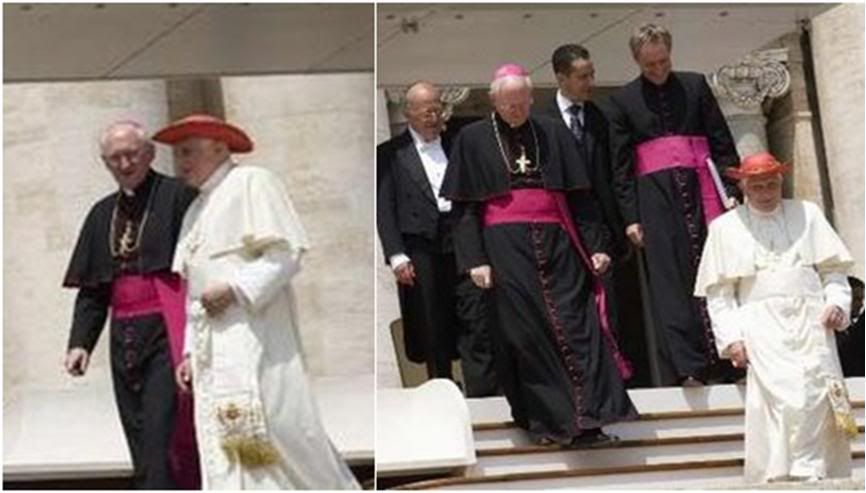
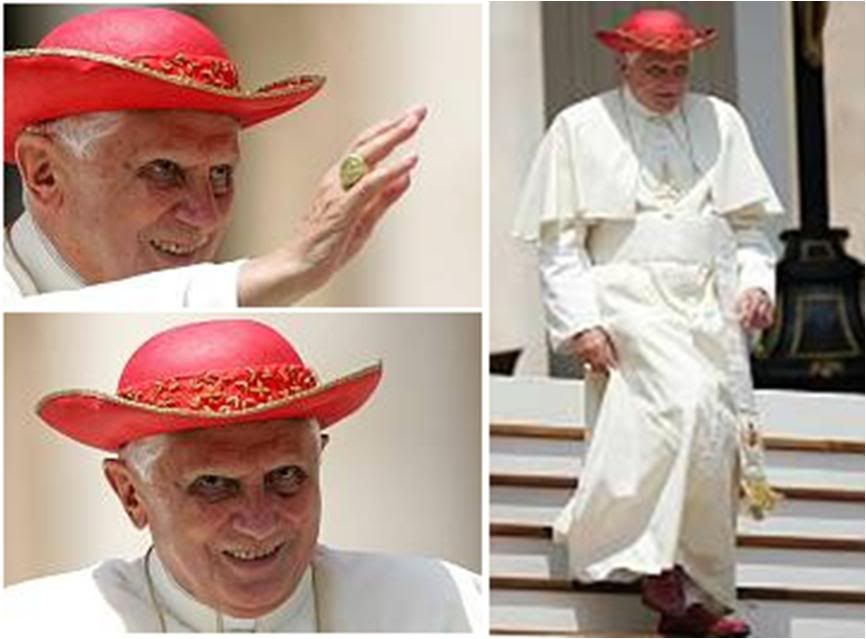
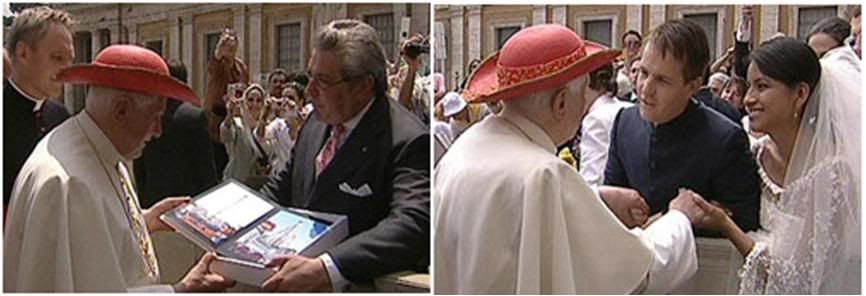
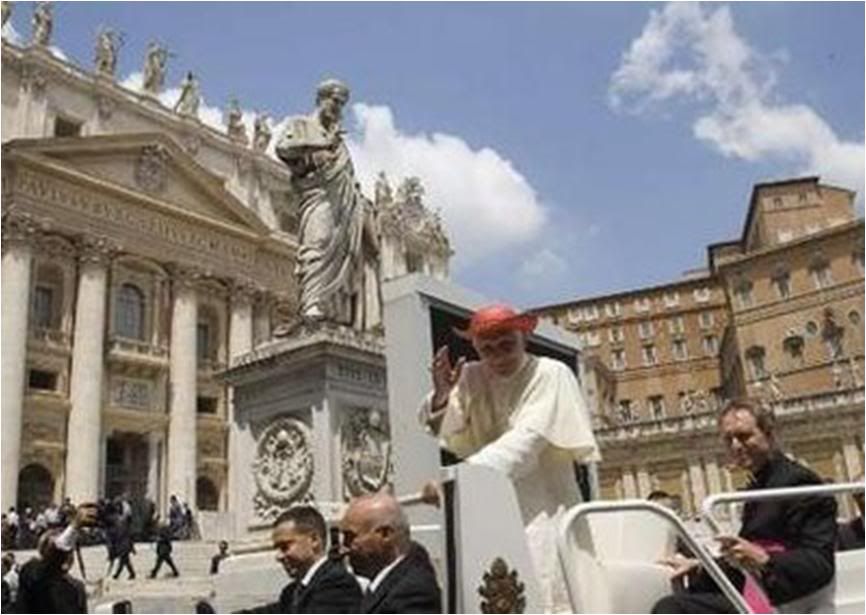
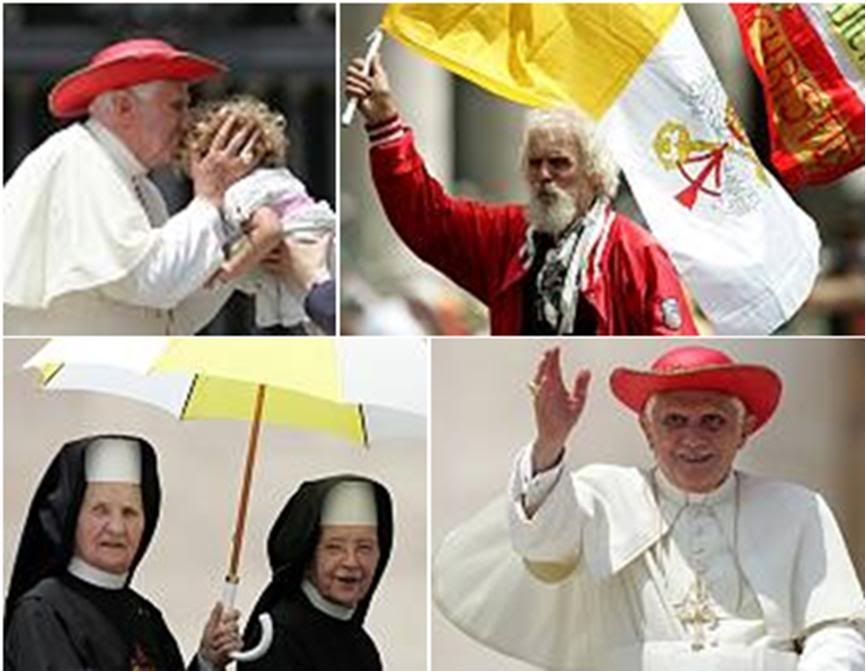

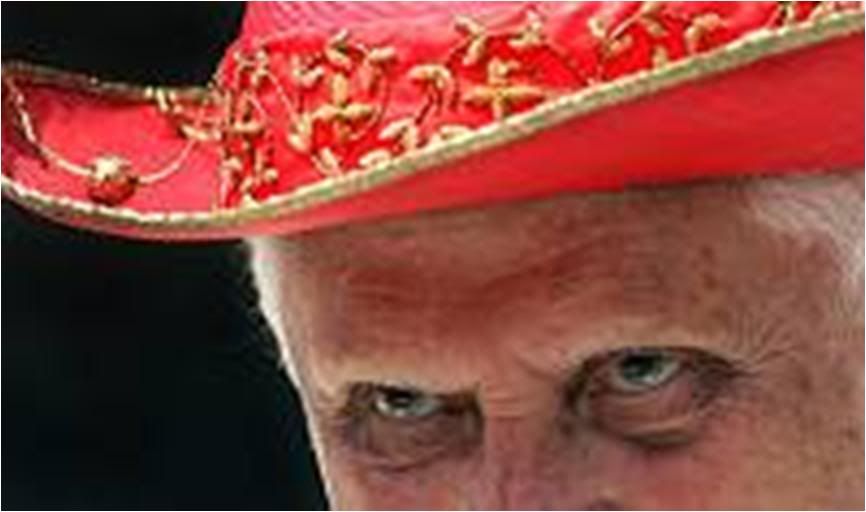
[Modificato da TERESA BENEDETTA 01/07/2009 21:54] |